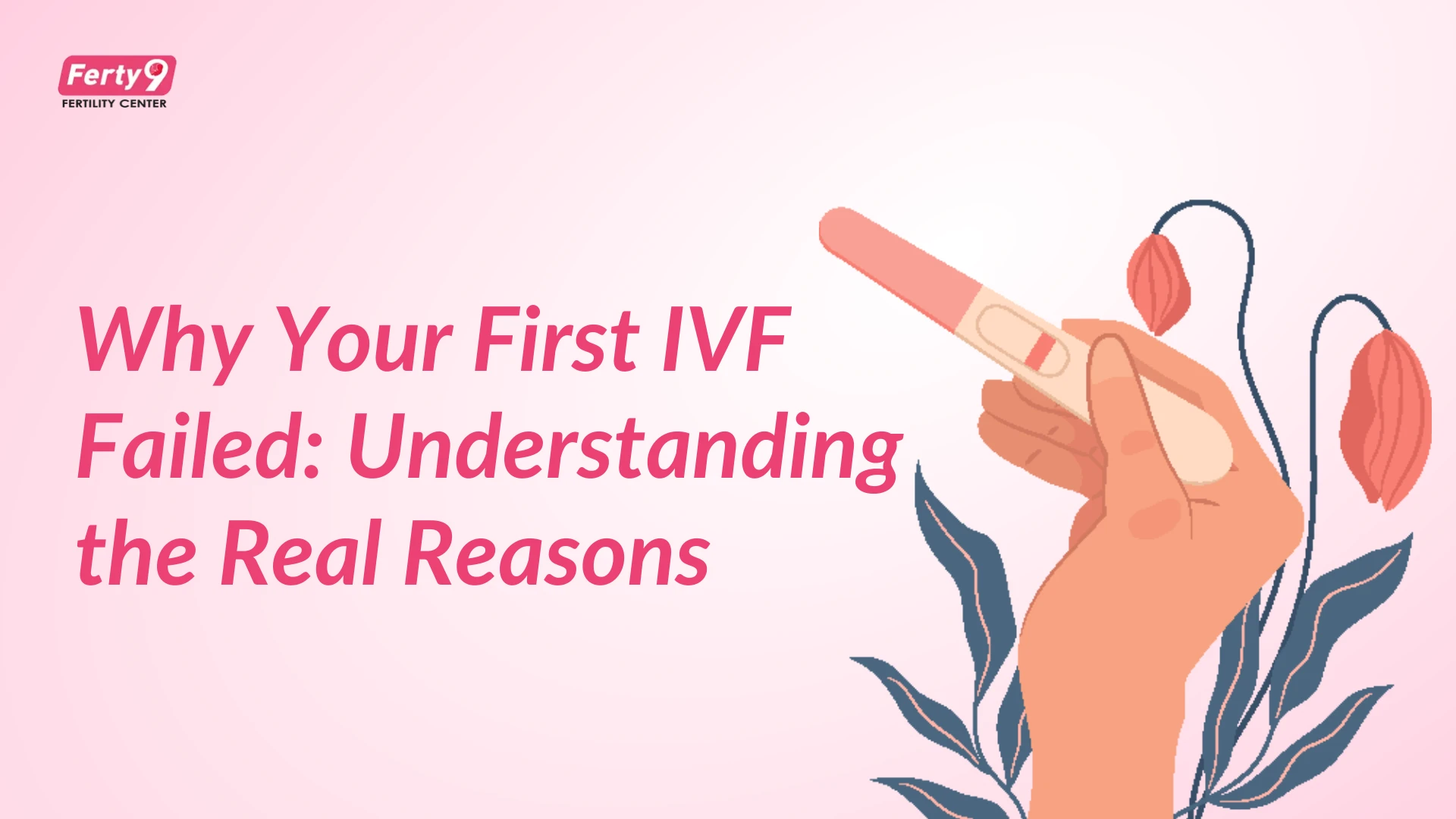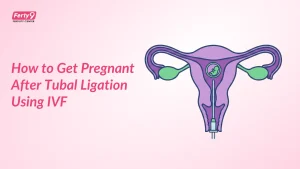Experiencing a failed IVF cycle is incredibly difficult. It’s natural to feel disappointed, confused, and to ask, “Why didn’t it work?” The most important thing to remember is that you are not alone, and a failed first attempt is not the end of your journey.
A first IVF cycle provides crucial information that helps our specialists at Ferty9 understand your body’s unique response. This knowledge is the key to creating a more effective, personalized plan for your next attempt. Let’s explore the common reasons why a first IVF cycle might not succeed.
1. Embryo Quality
This is the most common reason for IVF failure. An “embryo” is the result of a sperm fertilizing an egg. For a successful pregnancy, this embryo must be healthy and strong.
- Genetic Health: Many embryos that look good in the lab can have an incorrect number of chromosomes. This is a natural error and is the leading cause of embryos failing to implant or leading to an early miscarriage.
- Analogy: Think of an embryo’s genetic material as its blueprint. If the blueprint has critical errors, it simply cannot develop into a healthy baby.
The quality of the egg and sperm directly impacts the quality of the embryo.
2. The Age Factor
Age, particularly the woman’s age, plays a significant role in IVF success.
- Egg Quality and Quantity: As a woman gets older, especially after the age of 35, the number of her eggs decreases. More importantly, the quality of the remaining eggs declines, meaning a higher percentage will have chromosomal abnormalities.
- Male Age: While less pronounced, the age of the male partner can also affect sperm quality, which in turn can impact embryo development.
3. Ovarian Response to Stimulation
The success of IVF often begins with how well the ovaries respond to the fertility medications used to produce multiple eggs.
- Poor Response: Sometimes, the ovaries don’t produce enough eggs, even with medication. Fewer eggs mean fewer chances to get a high-quality embryo.
- Over-Response: In other cases, the ovaries may overreact to the medication. While this can result in many eggs, it can create a hormonal environment that is not ideal for the embryo to implant, sometimes requiring all embryos to be frozen for a later transfer.
Your doctor will use the results from your first cycle to adjust the medication protocol for a better response next time.
4. Implantation Failure
Implantation is the process where the embryo attaches to the wall of the uterus. Sometimes, a perfectly healthy embryo can fail to implant. This can be due to issues with the uterus.
- Uterine Lining: The lining of the uterus, called the endometrium, might be too thin or not receptive at the time of transfer.
- Physical Barriers: Conditions like uterine polyps, fibroids, scar tissue, or an abnormal uterine shape (septum) can prevent the embryo from attaching properly.
- Timing Issues: There is a specific timeframe, known as the “window of implantation,” when the uterus is ready. If the timing of the transfer doesn’t align with this window, implantation can fail.
5. Lifestyle Factors
While not the primary cause, certain lifestyle factors can influence the outcome of an IVF cycle. Being significantly overweight or underweight, smoking, and excessive alcohol consumption can negatively impact egg and sperm quality and hormonal balance. The good news is that these are factors you can work on improving before your next cycle.
Turning a Setback into a Stepping Stone
A failed IVF cycle is not a final verdict. It is a diagnostic step that provides a wealth of information. At Ferty9, our experts will thoroughly analyze every aspect of your first cycle—from your ovarian response to the embryo development—to build a smarter, more precise strategy for your future success.
Don’t lose hope. Let’s review your journey together and plan the best path forward. Schedule a consultation with our fertility specialists today.




























